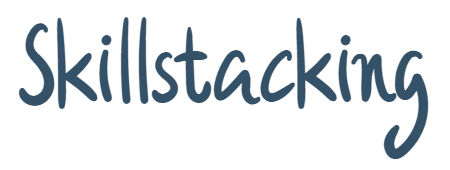The School of Hard Knocks (SOHK) has a lot of classes, including “Ignoring my Gut 101“. This is my real life Case Study in Commercial Real Estate where ignoring my gut instinct cost me $6,000 (plus time and effort).
The Scenario
I wanted to buy two stand alone commercial buildings in non-urban markets. The tenant was a national pizza brand that had been operating there for over 25 years. The seller was a REIT that was liquidating all of their similar properties, and I identified 2 out of a dozen that interested me. I identified the positives and negatives of being the landlord.
On paper, these two restaurants were amazing. The locations were fantastic, with very high traffic and very little vacancy in the neighbourhood. McDonald’s, a brand new government run marijuana store, and other national chains were all within a few hundred metres. These stores had been purchased by an experienced national franchise operator just two years prior, which gave me confidence that they were profitable.
My research also turned up some negatives. The leases were up in two years, which presented the risk of two vacant buildings. The “National Pizza” Chain had announced that it was converting its stores from the 4000 square foot dine in locations to a more modern 2000 square foot locations. So, this could be the way that I was going to lose on this deal.
I did not have the “Hell Yeah!” enthusiasm that I insist on having as part of any endeavour I take on. This is where I started going against my gut instinct.
Negotiating a Great Deal
Sometimes, I think I am good negotiator. In this case, I managed to secure an offer for 30% off of the asking price and 25% below market value. Maybe I fell in love with (what I thought was) a win, or maybe I got greedy. I listened more to the voice in my head tell me I am great negotiator rather than the one asking why the owner would let it go so cheap. I settled on the fact that the REIT in question is a large corporation that does not like small properties (which is true).
Justifying it
I felt a “Hell Yeah!” on the profitability. The 30% Return on Investment was amazing. The feelings of greed kicked in, with a small voice that I muted saying “the higher the return, the higher the risk”. I convinced myself I was ok with the risk.
I started justifying, and it was all actually quite good. I told myself that even if the tenant left after 2 years, the capital was safe. I told myself that if these properties went vacant, it would not be too bad; we would save our dividends and be able to have a few months of vacancy before a cash call. We would be able to replace the tenant.
Early Warning Signs
I just love my partners. Many of them essentially said “if it’s good enough for you, Marc, I’m in!” Blind Faith is humbling. One of them said, “I’m confident there will be vacancy, but I’m with you anyways”. Wow. The loyalty runs deep, and the confidence in me brings a great sense of responsibility.
A tenant interview was part of my offer conditions. The plan was to ask leading questions and try to discern if the seller planned to stay after their lease was up. The interviewee wasn’t anybody of any managerial or decisional powers, so I did not get any useful information to the direct questions. Was I being stonewalled?
It is always prudent to eat in a prospective tenant’s restaurants. I discovered that the staff has very little turnover, and the restaurant was 25% full Tuesday at noon. The atmosphere was somewhat dated, with what looked like 20 year old ceiling tiles and chairs and booth fabric not being terribly clean. But this shabbiness matched the food offering and the customer profile. Was it possible that there was no more investment in this site? Questions started to linger.
Early Sunk Costs
The Sunk Costs were starting to grow. Lawyers bills had already been racked up to over $4000. Inspectors were already at $2000. Time had been spent, and effort placed.
Really importantly is that I had the commitment of my partners and was completely financially prepared to close on the deal. Was I going to let them down and NOT go through with it, or would I let them down later? Or, would I hit it out of the park with a 30% return?
My early sunk costs of cash, time, effort, and partner momentum all conspired to move me forward on a deal that I was no more certain of than when I started. No smoking gun presented itself.
Later Warning Signs. (Smoking Guns)
Thankfully, things became a lot clearer due to some extra information.
The inspection revealed that the tenant was NOT investing in upkeep. And interview with the shift manager about the state of the furniture revealed that she was frustrated that the general manager instructed her to NOT update or clean the furniture. The kitchen itself did not have any new equipment. The bathroom plumbing needed fixing and the shift manager was instructed to just spray it so the smell goes away.
A call with the Master Franchisor for the province revealed that the tenant I would be dealing with had already converted a couple of their sites! In other words, they left the 4,000 square foot stand alone dine-in model in favour of a 1,500 square foot model in a strip mall. A quick google search confirmed this to me true.
These two smoking guns told me that I should walk away.
Sunk Cost Fallacy Kicks In
Even then you know you are beat, it is difficult to let go. Feelings of “I should have known better”, and “I’m going to lose the money I put in” and just plain “I was so stupid to waste my time” all come up. The brain knows the answers, but the heart wants to wallow in self pity, and the ego wants to cling on. I tried my best to limit that time.
Even after identifying the two smoking guns that should have killed these deals, my Sunk Cost Fallacy kicked in hard. It took me a full 24 hours to fully decide to abandon the project.
As soon as I told my agent that I was killing the deal, a huge weight lifted.
Epilogue: Benefits of Abandoning a Lost Cause
I have to reiterate how much I love my partners. They were all supportive, and some actually said that it increased their confidence in me that I walked us all away from this deal. Some even offered to offset the costs. It was such an amazing feeling to know that I might actually have strengthened my relationship with them by walking away.
While I killed this project, the universe handed me 2 more opportunities. I was presented 2 other projects for which I immediately had a “Hell Yeah!” feeling. They are a much better fit for my partners. Sure, the return is not as high, but the risk is much lower; the value is better.
Finally, the biggest benefit I gained was learning about how wonderful everything feels after abandoning a lost cause. I pride myself in “not being a quitter”, which when used as an axiom rather than a guideline can be ruinous. I did not fully understand nor appreciate how liberating it feels to just walk away after having sunk months of work and $6,000.
I’m grateful to have gone through this and wishing that I will be quicker in identifying a lost cause next time.
Check Out Letting Go of a Lost Cause for tips, or a list of all School of Hard Knocks articles.
Derek Sivers
A shout out to Derek Sivers. He has an awesome book called ‘Anything You Want’. The concept is:
Use this rule if you’re often over-committed or too scattered.
If you’re not saying “HELL YEAH!” about something, say “no”.
I did NOT apply this rule, and I really should have much earlier. Check it out. https://sivers.org/hellyeah
Please feel free to comment below, send me some direct feedback, or share on the Socials. I am grateful to have you on this journey with me!







Such an educational post, Marc – thank you for sharing so much of yourself and your work.
Thanks Ben. I forgot to mention Derek Sivers, who has been an influence for me.
He has an awesome book called ‘Anything You Want’. The concept is:
Use this rule if you’re often over-committed or too scattered.
If you’re not saying “HELL YEAH!” about something, say “no”.
I did NOT apply this rule, and I really should have much earlier.
Check it out.
https://sivers.org/hellyeah